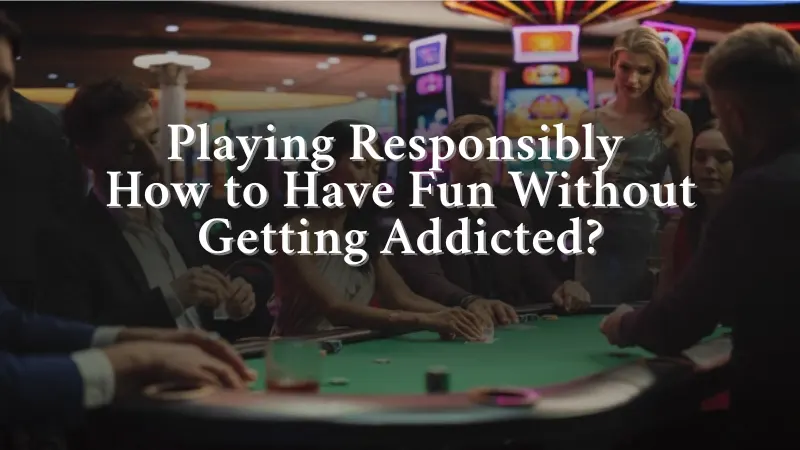Online gaming has become an indispensable part of modern life, offering precious moments of relaxation after stressful days. From simple mobile games to complex entertainment platforms, technology provides countless opportunities for connection, learning, and enjoyment in virtual worlds.
But behind the thrill lies a worrying reality: more and more people are falling into excessive gaming, turning leisure into a burden that seriously impacts real life. Studies suffer, work performance declines, social relationships falter—all stemming from a loss of control over gaming.
This article will guide you on how to maintain responsible play, so you can fully enjoy gaming without being sucked into addiction. Trusted platforms like 91 Club understand the importance of encouraging thoughtful, positive gaming and creating a safe environment for all users.
What Is Game Addiction? Signs to Watch For
Game addiction—or gaming disorder—occurs when gaming becomes the top priority in your life, surpassing all other activities and responsibilities. It’s not just about long play hours but a total loss of self-control, continuing despite negative impacts.
Early warning signs can be subtle. You might constantly think about gaming even when you’re not playing or feel restless and irritable when you can’t access it. Planned gaming sessions gradually stretch until endless, and you start lying about how much time you spend.
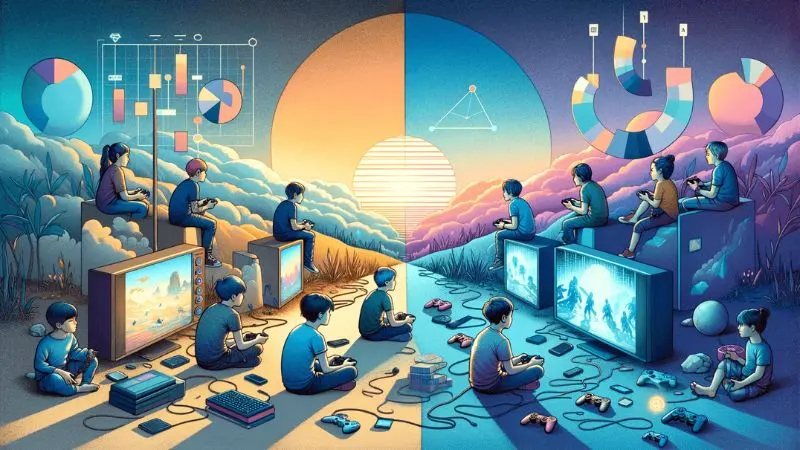
Social relationships show cracks—declining interest in social events, skipping important appointments, or growing irritable when leaving the game. Productivity at work or school drops noticeably, deadlines are missed, and daily responsibilities are ignored.
Most concerning is when gaming becomes an escape from real-life issues. Instead of addressing stress, pressure, or personal challenges, you dive into virtual worlds. This creates a dangerous loop: avoidance breeds more problems, which fuels more gaming to hide anxiety.
Why Is Game Addiction So Common?
The modern gaming industry has developed sophisticated psychological mechanisms to hook players. Every time you complete a mission, level up, or earn a reward, your brain releases dopamine—the “feel-good” chemical. These short, continuous reward cycles are designed to keep you wanting more.
Developers use “variable ratio reinforcement,” delivering unpredictable rewards like a slot machine. You never know when the next big reward will come, making it tough to stop once you start.
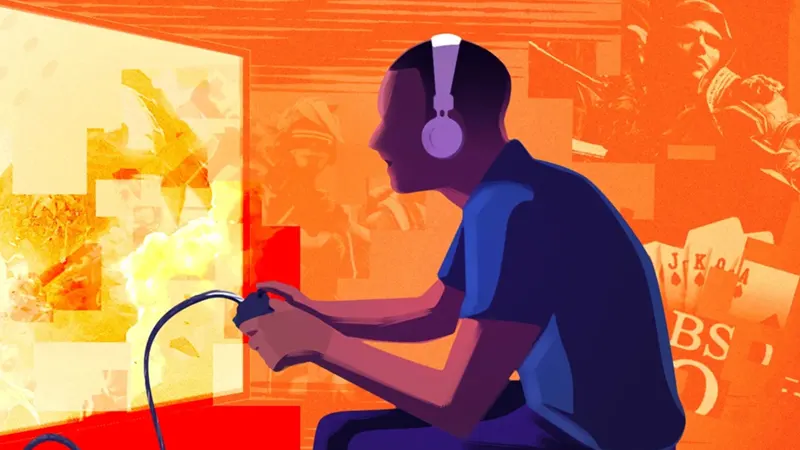
Reality often can’t compete with the instant gratification games provide. While real-life achievements can take weeks, games offer victories in minutes. Empty or unfulfilling real-life experiences make gaming a go-to source of stimulation, replacing meaningful engagement.
Work, study, or relationship pressures can make games a psychological refuge. In game worlds, you can feel in control and accomplished—things reality might not always offer. But the longer you escape, the harder it becomes to return to normal life.
What Is Responsible Play?
Playing responsibly doesn’t mean avoiding games entirely—it means enjoying them with awareness and balance. It’s about controlling your time, emotions, and behavior so gaming never undermines your important real-life priorities.
A responsible gamer sets clear limits and sticks to them. You know how long you’ll play, when you’ll stop, and you never let gaming encroach on work, study, or social life. Gaming becomes a reward after fulfilling daily responsibilities, not your top priority.
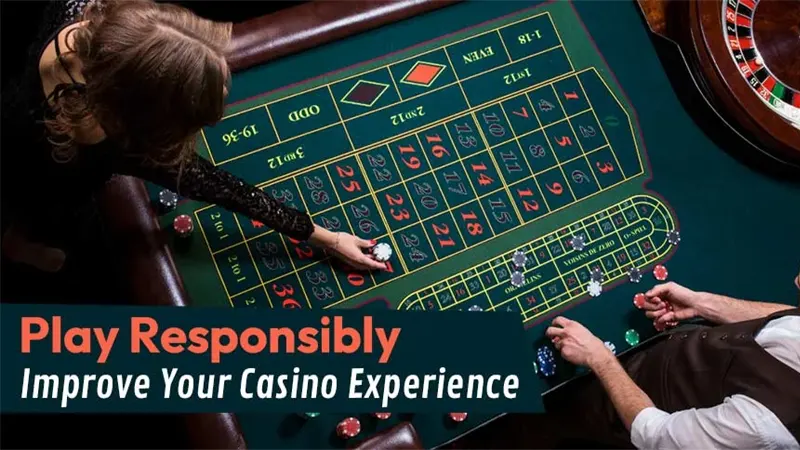
Your mindset matters too. Responsible gamers maintain emotional stability—they don’t let wins or losses affect their mood offline. They play to relax and entertain, not to prove something or escape personal issues.
91 Club recognizes how crucial this balanced approach is. The platform offers quality games and integrates features like time reminders, regular break prompts, and a positive, pressure-free environment. 91 Club’s priority is user well-being—not hooking players at any cost.
7 Self-Management Tips for Gaming
Maintaining a healthy relationship with gaming doesn’t happen by accident—it takes intention, awareness, and good habits. Whether you’re a casual player or a competitive gamer, these seven self-management strategies will help you enjoy gaming without letting it take over your life.
1. Set Clear Time Limits—And Actually Stick to Them
It’s easy to lose track of time in the middle of an intense session or a close win. That’s why the first and most important habit is to define how long you’ll play before you start. Whether it’s 30 minutes, an hour, or two, choose a realistic time limit and hold yourself to it.
Use tools like alarms, app timers, or even built-in game limiters to enforce the cutoff. When the timer goes off, stop—no “one more game” excuses. The discipline you build here spills over into other parts of life, improving focus and time management beyond gaming.
Bonus tip: Log your gaming time for a week to see patterns and identify when you’re most likely to overplay. Adjust accordingly.
2. Schedule Regular “No-Game” Days to Reset
At least once a week, take a complete break from gaming. These “reset” days are like a detox for your brain. You give your nervous system a chance to rebalance and recover from constant stimulation.
During these breaks, explore alternative activities that bring you joy—reading, walking, hanging out with friends, learning a new skill, or revisiting a hobby you’ve neglected. These off-days help restore perspective and prevent gaming from becoming your default escape or only source of excitement.
If the thought of a day without gaming feels uncomfortable, that’s a signal you may need it more than you think.
3. Prioritize Real-Life Responsibilities First—Gaming Comes After
One of the cleanest ways to prevent gaming from disrupting your life is to flip the usual order: Work first, play later. Instead of procrastinating by gaming, finish your tasks—homework, errands, meetings—then reward yourself with gaming.

This method reinforces discipline and makes gaming feel earned. It also removes guilt from the equation—when you know you’ve handled your responsibilities, you can enjoy gaming guilt-free.
Pro tip: Break tasks into smaller chunks and link them to game rewards. For example, “Finish this report, then play 30 minutes.” This builds momentum and positive reinforcement.
4. Don’t Game When You’re Emotionally Vulnerable
Gaming while stressed, angry, sad, or when you are in a “loser mentality” is a slippery slope. In these emotional states, you’re more likely to make impulsive decisions—binge for hours, rage quit, overspend, or lash out at others online. Worse, the emotional triggers can create a loop where you play to escape, but end up feeling worse.
Instead, pause and ask yourself why you’re reaching for the game right now. Is it boredom, avoidance, or genuine relaxation? If it’s to numb or avoid, try something else first: go for a walk, meditate, call a friend, listen to music, or write down what’s bothering you.
Games should lift you up—not mask deeper problems.
5. Avoid Late-Night Sessions
Late-night gaming disrupts sleep and healthy routines. Screen’s blue light messes with your biological clock, making rest and next-day energy harder to achieve. Set a strict evening cutoff.
6. Play With Friends or Family
Gaming socially adds accountability and connection. Plus, playtime chats help you stay linked to real-life relationships.
7. Choose a Trustworthy Platform like 91 Club
Select platforms that care about your mental health. 91 Club stands out with built-in time-tracking, rest reminders, and self-limiting tools. The right platform can make a big difference in a positive gaming experience.
Choosing Games and Platforms Wisely
Not all games promote healthy play. Some are designed to keep you glued with addictive mechanics. Look for titles with clear session boundaries and no constant online demands. Your platform matters too. Respectable platforms include features like time reminders, spending limits, and educational info about gaming risks. They also offer trained support for players showing signs of problematic behavior.
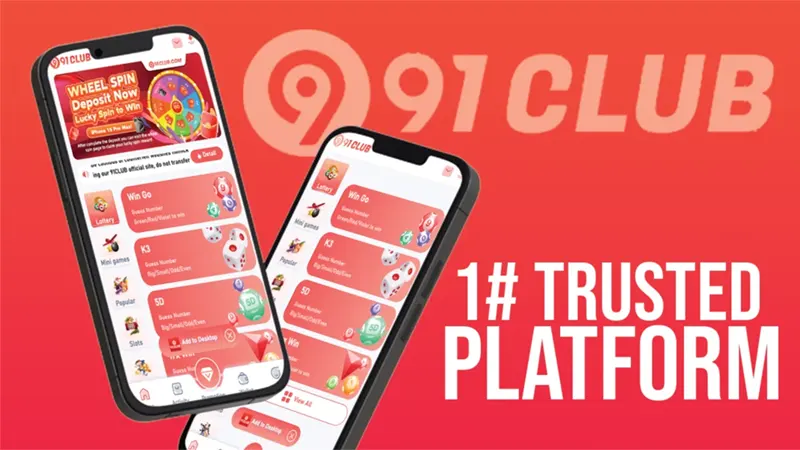
91 Club represents a new gaming approach—placing user safety and well-being first. With accessible, pressure-free games and encouragement for positive attitudes, 91 Club avoids triggering greed or “win-at-all-costs” mindsets, focusing instead on fun and meaning.
Standout features at 91 Club include time tracking, rest recommendations, and educational resources. The platform is transparent about risks and encourages players to seek help if needed.
Games aren’t inherently bad—they only become problematic when we lose control and let them dominate our lives. Like movies or sports, gaming can offer positive experiences when approached responsibly. The key lies in setting clear boundaries, maintaining balance, and prioritizing mental health and real relationships.
Responsible play protects you from harm and allows you to fully enjoy gaming’s potential. When you play for fun—not dependence—each session becomes a true moment of relaxation.

